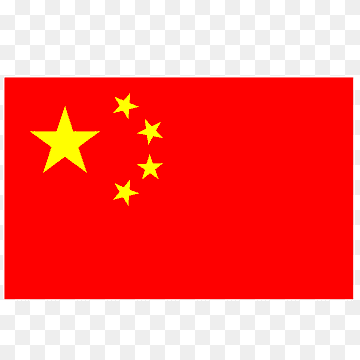China extends assistance to Pakistan in fostering its economic growth, encompassing both pre-CPEC and post-CPEC eras. The China-Pakistan Economic Corridor (CPEC) has been a game-changer, initiating a new phase of economic cooperation that has resulted in numerous projects with far-reaching impacts on Pakistan’s socio-economic development. The first phase had a great impact on our GDP, economy and social life. While we are entering into Second Phase, which is high quality development, the impact will be more visible and direct.
Pre-CPEC Era: Laying the Foundation
Before the initiation of CPEC, China played a pivotal role in supporting Pakistan’s economy through various projects. Notable examples include the Karakoram Highway and Gwadar Port. These projects not only enhanced infrastructure but also fostered regional connectivity, creating a foundation for future economic collaboration. These two projects are of economic worth for Pakistan.
Post-CPEC Era: Transformative Economic Cooperation
The China-Pakistan Economic Corridor, launched in 2013, stands as a hallmark of Sino-Pak cooperation, comprising energy, infrastructure, and industrial projects. The flagship projects, such as the development of Gwadar Port, energy projects like Sahiwal and Port Qasim power plants, and the construction of motorways and highways, have significantly bolstered Pakistan’s economic landscape. These projects are considered pre-requisite for its economic take-off.
Direct Impact on Economic Growth: Unleashing Potential
CPEC projects have directly addressed Pakistan’s energy deficit, ensuring a stable power supply for industries and households. This has led to increased industrial productivity, job creation, and foreign direct investment. The upgraded infrastructure has not only facilitated smoother transportation but has also attracted international businesses, contributing to economic diversification. There exists a huge potential and require a lot of hard work to achieve high-quality desired out-comes.
Indirect Impact: Socio-Economic Development
The spillover effects of CPEC extend beyond the economic sphere, positively influencing various social aspects. Enhanced connectivity has reduced regional disparities, promoting inclusivity and creating opportunities for marginalized areas. The development of vocational training centers and educational institutions under CPEC has further empowered the local population. People of Pakistan, especially in the backward areas are the beneficiary.
Social Impact: Fostering People-Centric Growth
CPEC has ushered in a new era of social development, with initiatives focusing on poverty alleviation, healthcare, and education. Special Economic Zones (SEZs) established under CPEC are driving industrial growth, creating jobs, and uplifting local communities. Improved access to quality healthcare and education has contributed to an overall enhancement in the standard of living. China’s rapid development journey started from launching Special Economic Zone, and Pakistan may replicate a similar approach to achieve the desired outcome.
Economic Diplomacy: Strengthening Bilateral Ties
The economic cooperation between China and Pakistan exemplifies a successful model of diplomatic collaboration. This partnership has not only addressed Pakistan’s development needs but has also strengthened the strategic ties between the two nations. Shared economic interests have fostered a sense of mutual trust and understanding. Pakistan enjoys very cordial and warm relations with China. There is no match anywhere in the world in international relations, which China-Pakistan enjoys. We are time-Tested, Ever-lasting, All-Weather, and all dimensions close cooperation, strategic partner and sincere friends.
Optimism for the Future: Sustaining the Momentum
As CPEC progresses, the collaboration between China and Pakistan is poised to yield even greater benefits. The establishment of more SEZs, advancements in technology, and continued investments in human capital are expected to further propel Pakistan’s economic growth. The optimism surrounding CPEC extends to its potential to serve as a catalyst for regional stability and prosperity. Based on seven decade’s experience, trust, out future will be even brighter and strengthen the unprecedented friendship.
Human Resource Development
Above all, China has prepared a skilled work force Pakistan to face the challenges of 21st Century. There are currently around 30,000 Pakistani youth studying in various Universities in China, mostly in emerging Science and Technologies. They are enrolled in various programs, including Undergraduate, Master-level, PhD-level and Post Doc-levels. There are also an equal number of Pakistani graduated from China and working in various important positions in Pakistan and contributing toward the social economic development of the country. Short Courses, On-Job Trainings, Professional Development Courses are additional assistance in developing Human Resource for Pakistan. Human Resource is the key to sustainable development for a nation. Once, the country is requisite human resource, the development will be accelerated.
The Chinses projects are backbone of the country in its economic take-off. Most of the projects, either, power, Industrial, agriculture or any other, all are poised to boost Pakistan’s economy. China is sincerely assisting Pakistan and facilitating in promoting economic activities. However, it also depends on our hard work and willingness to change our fate. China’s role is instrumental and guidance provider. It is our responsibility to avail Chinese experience and replicate some of Chinese policies for rapid developments.
China’s support to Pakistan in developing its economy, particularly through the transformative CPEC projects, has yielded commendable results. The direct and indirect impacts on economic growth, coupled with the positive social outcomes, underscore the success of this bilateral collaboration. The continued implementation of CPEC projects sets the stage for sustained economic prosperity, not only for Pakistan but for the entire region.
Author: Prof. Engr. Zamir Ahmed Awan, Founding Chair GSRRA, Sinologist, Diplomat, Editor, Analyst, and Non-Resident Fellow of CCG (Center for China and Globalization). (E-mail: [email protected]).

















